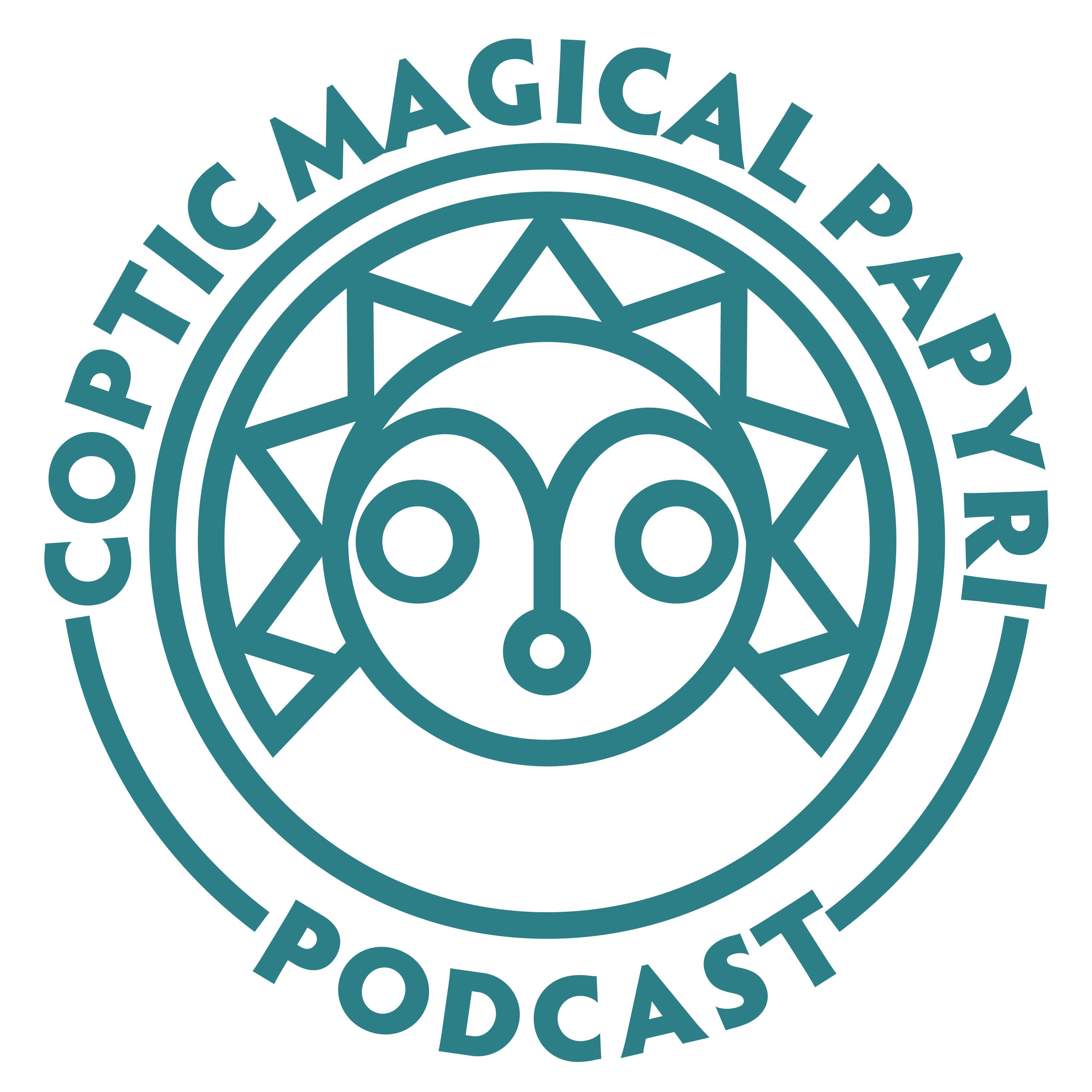
Looking Back at the Five Years of the Coptic Magical Papyri Project – Coptic Magical Papyri Podcast
In this episode, the well-known scholar of ancient Mediterranean religion David Frankfurter not only introduces the into the basic questions concerning magic in the ancient world, but also shares his memories of magic studies during their revival in the 1990’s. David Frankfurter specializes in Jewish and Christian apocalyptic literature, magical texts, popular religion, and Egypt in the Roman and late antique periods. Frankfurter’s particular interests revolve around theoretical issues like the place of magic in religion, the relationship of religion and violence, the nature of Christianization, and the representation of evil in culture.
David Frankfurter earned his bachelor degree in Religion from Wesleyan University, master of theological studies degree from Harvard Divinity School, and master as well as Ph.D. degree from Princeton University. Currently, David Frankfurter holds the William Goodwin Aurelio Chair of the Appreciation of Scripture at Boston University. His publications include Elijah in Upper Egypt based on his doctoral thesis and published in 1993, discussing an unusual early Christian prophecy that envisioned the end times in Egyptian terms. His 1998 book Religion in Roman Egypt: Assimilation and Resistance shows the different ways Egyptian religion continued despite the decline of temples and rise of Christianity. Evil Incarnate: Rumors of Demonic Conspiracy and Satanic Abuse in History published in 2006 discusses the ways that cultures and religious movements envision evil as an active, personified force. So far his last book Christianizing Egypt published in 2017, focuses on questions of syncretism. Our listeners also can be familiar with David Frankfurter as the editor of the monumental Guide to the Study of Ancient Magic, which appeared only three years ago.
Works of David Frankfurter concerning various topics discussed in the podcast episode:
Syncretism: Further Explanations:
Christianizing Egypt: Syncretism and Local Worlds in Late Antiquity (Princeton: Princeton University Press, 2017), chap. 1 & passim.
“Syncretism,” Brill Encyclopedia of Early Christianity (Leiden: E. J. Brill, 2018 online).
“Restoring ‘Syncretism’ in the History of Christianity,” Studies in Late Antiquity 5, 1 (2021): 128-38
Historiola: Further Explanations:
“Narrating Power: The Theory and Practice of the Magical Historiola in Ritual Spells,” Ancient Magic and Ritual Power, (Leiden: Brill, 1995), 451-70.
“Narratives That Do Things,” Religion: Narrating Religion, ed. Sarah Iles Johnston (Farmington Hills, MI: Macmillan Reference USA, 2017), 95-106.
Imagining Contexts for “Magical” Artifacts:
“‘As I twirl this spindle, . . .’: Ritualization and the Magical Efficacy of Household Tasks in Western Antiquity,” Preternature 10, 1 (2021): 117-39.
“‘It is Esrmpe who Appeals!’: Place, Object, and Performance in a Quest for Pregnancy in Roman Egypt,” Placing Ancient Texts: The Ritual and Rhetorical Use of Space, edd. Mika Ahuvia and Alexander Kocar (Tübingen: Mohr Siebeck, 2018), 181-96.
“Female Figurines in Early Christian Egypt: Reconstructing Lost Practices and Meanings,” Material Religion 11, 2 (2015): 190-223.
“Fetus Magic and Sorcery Fears in Roman Egypt,” Greek, Roman, and Byzantine Studies 46, 1 (2006): 37-62.
